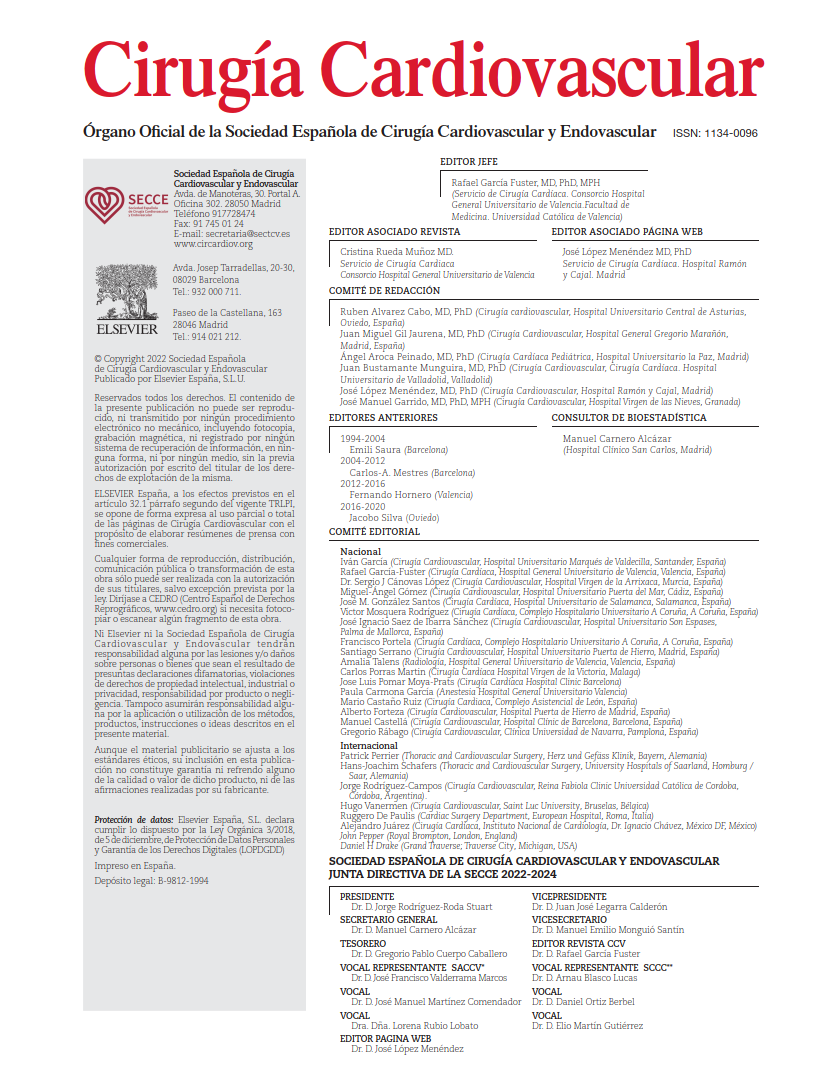
Transcarotid access in TAVI versus surgery: early advantage and comparable one-year outcomes
This single-center observational study compared the outcomes of transcarotid transcatheter aortic valve implantation (TC-TAVI) with those of conventional surgical aortic valve replacement (SAVR) in patients with severe aortic stenosis who were not suitable candidates for transfemoral access.
Life after Mustard surgery
Single-center longitudinal cohort evaluation in a Dutch population analyzing consecutive patients with transposition of the great arteries (TGA) who underwent Mustard repair between 1973 and 1980, assessing post-operative comorbidities and subjective quality of life across long-term follow-up.
Sutureless aortic arch replacement: made in China
Experience and comparative evaluation against the conventional procedure of a disruptive sutureless anastomotic strategy, applied both proximally and distally, for total arch replacement in patients presenting with acute type A aortic dissection.
Spanish heart transplant registry 2025: consolidation of activity and new horizons in donation after circulatory death
The Spanish Heart Transplant Registry presents the results of the activity corresponding to 2024, analyzing trends in recipient and donor profiles, the use of mechanical circulatory support, and survival patterns over the past decade.
Long-term survival in patients with preserved ejection fraction and three-vessel coronary artery disease undergoing surgical revascularization
This multicenter retrospective study analyzes long-term survival benchmarks among patients with preserved left ventricular ejection fraction (LVEF) and three-vessel coronary artery disease (CAD) who underwent isolated surgical revascularization, comparing their survival with an age- and sex-matched cohort from the general U.S. population.
Current state of intraoperative transesophageal echocardiography during adult cardiac surgery: considerations and recommendations
This update article, released by the American Heart Association (AHA), summarizes the main indications for intraoperative transesophageal echocardiography (TEE), its association with clinical outcomes and prognostic value, and provides a hierarchy of specific considerations for different types of cardiac surgery.
Mitraclip in octogenarians with degenerative mitral regurgitation: the impossible comparison
A recent study compared outcomes of transcatheter edge-to-edge repair (Abbott MitraClip®) versus surgical mitral repair in octogenarian patients with severe organic mitral regurgitation, aiming to evaluate safety, efficacy, and midterm outcomes
Transcarotid vascular access for transcatheter aortic valve implantation: is choosing the left side always right?
Retrospective analysis of 46 patients who underwent transcarotid TAVI at a single Swiss center, focusing on two quantifiable parameters derived from preoperative CT angiography.

